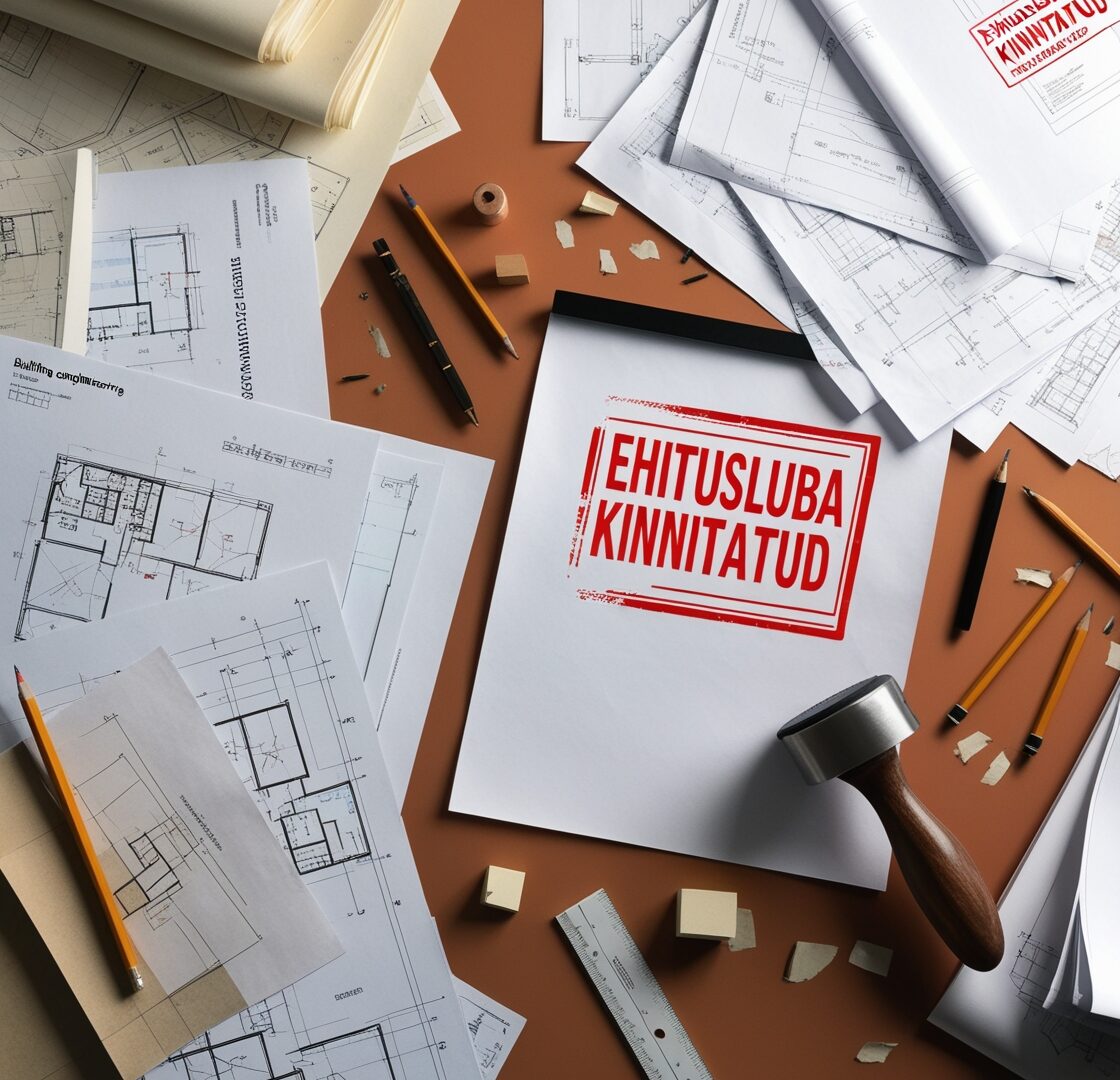A building permit is a document required for larger and more complex construction projects to ensure compliance with laws and planning regulations. Its purpose is to protect the safety of the building and the environment, as well as to ensure that the construction fits harmoniously within its surroundings. If you are planning to build a new house, renovate an existing building, or undertake any other significant construction, it is likely that you will need a building permit.
When is a building permit needed?
A building permit is required if the construction work could have a significant impact on the surrounding environment, neighbours or infrastructure. Here are some typical situations:
- Construction of a new building: if you plan to build a residential building over 60 m², or another larger structure.
- Major alterations: for example, adding a storey, changing load-bearing walls or changing the functionality of the building (e.g. converting a garage into living space).
- Construction of certain types of structures: large industrial buildings, public facilities or infrastructure such as bridges or high-voltage substations.
When is a building notice sufficient?
When is a building notice needed? – A building notice is a simplified documentation for smaller works. It is needed for example:
- For the construction of small outbuildings (e.g. a shed or an outhouse of less than 60 m²).
- For minor renovations that do not affect the structure of the building or neighbours.
If you’re not sure whether you need a building permit or a building notice, it’s worth consulting your local authority or architect.
Building permit application process
The application for a building permit consists of several steps, each of which can affect the duration and cost of the process. Here are the main steps:
- Preparing a building project
To apply for a building permit, you need a preliminary project that includes architectural and technical solutions. The preliminary design must be detailed and comply with local authority requirements. In addition, it may be necessary to:- Geodetic base plan.
- Energy label.
- Projects for various engineering components (e.g. water supply and electrical systems).
- Obtaining approvals
Depending on the project, approvals may be required from the emergency services, network operators and other authorities. For example:- Approval by the Rescue Board ensures that the building complies with fire safety requirements.
- To connect to the electricity grid, you need the approval of the grid operator.
- Applying for a building permit
Once all the necessary documents have been completed and approvals have been obtained, you can apply for a building permit. The local authority will process the application by checking that the project complies with legal requirements and local planning. - Issuing a building permit
If all the conditions are met, a building permit is issued. This gives you the right to start building work. The processing time can be up to 30 days, but can be longer for more complex projects.
Frequently asked questions about building permits
How long does it take to apply for a building permit?
It usually takes 1-2 months to process a building permit, but this depends on the complexity of the project and the speed of obtaining approvals.
How much does a building permit cost?
Costs depend on the size and complexity of the project. For example, a building permit for a dwelling can cost around €150 for the state fee, plus the cost of drawing up the project and obtaining approvals. If you are able to manage the building permit project yourself, the process will be cheaper for you. However, it’s worth investing in the services of professionals to mitigate the risks – especially if you haven’t done it before.
What happens if a building permit has not been applied for?
In the case of illegal construction, the local authority can impose a fine and require the regularisation of the building, which is time-consuming and often more expensive than applying for the original permit.
Summary
A building permit is an important document that ensures that a building complies with laws and requirements. Although the process may seem complicated and costly, it can help avoid problems later on. For smaller-scale construction activities, a building notice may be sufficient.
It is always advisable to involve a specialist in this process to guide you through the whole process and help you to avoid possible mistakes. This way, you can be confident that your project will be completed correctly and on time. If this is the partner you are looking for, contact the Est Estate specialists and we will be happy to help!
